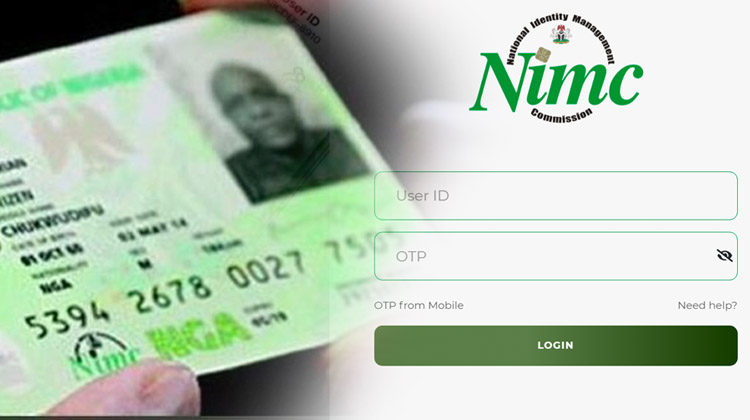
NIN registration: FG records only 48% of monthly target.
From finding, the National Identity Management Commission has only been able to meet 47.6 per cent of the Federal Government’s monthly target of 2.5 million registrations in the first eight months of the year,
This is as the number of Nigerians with National Identification Numbers increased to 102.39 million in August despite a slowdown in the number of enrolments.
NIMC data obtained and analysed, enrolment has fallen by 35.14 per cent year-on-year in the first eight months of the year as only 8.36 million (as of August 28, 2023) people have enrolled for NIN so far this year from the 12.89 million people that had enrolled as of July 7, 2022.
NIN enrolment per month on average is 1.19 million per month in the first eight months of 2023. The data indicated that the country is falling short of its 2.5 million National Identification Number enrolment target per month as set in the National Development Plan 2021-2025.
The commission was able to register 21.33 million people in 2022, with NIN enrolment rising from 72.7 million as of January 1, 2022, to 94.03 million as of December 31, 2022. The average NIN enrolment per month was 1.78 million per month for the year.
The plan of the Federal Government stated that it will enroll 100 million Nigerians in three years, and 2.5 million people monthly. It said the paucity of data was becoming a problem in the country and this needed to be addressed with a registration drive.
“The latest of these is the Nigerian Communications Commission linking SIM Registration Data to the National Identity Number Database. NIMC plans to register an additional 100 million people in three years and has embarked on a massive registration drive. The plan is to enroll 2.5 million people monthly for the next three years.”
“NIMC’s enrolment figures as of August 28, 2023, currently stand at over 102.39 million unique records. The highest cumulative enrolment figure of over 11.17 million was recorded in Lagos State.”
The total number of diasporan enrollment stood at 482,670, and the overall data revealed that men (58.15 million) have enrolled for NIN more than women (44.24 million). The top states for NIN enrollment include Lagos (11.17 million), Kano (9.08 million), Kaduna (6.35 million), Ogun (4.32 million), and Oyo (3.97 million).
Bottom states include Bayelsa (642,233), Ebonyi (818,173), Ekiti (1.01 million), Cross-River (1.17 million), and Taraba (1.48 million).
At a recent dinner in partnership with the Ministry of Communications and Digital Economy, the World Bank Country Director for Nigeria, Shubham Chaudhuri, affirmed the bank’s collaboration with NIMC to ensure the successful rollout and registration of digital national IDs in the country.
He restated the commitment to provide at least 148 million people of working age with a digital national ID by the middle of 2024. He noted the potential of leveraging digital technologies to drive transformation.
“Our main mission here in Nigeria is to eliminate poverty, make lives better create jobs, for all Nigerian youth. One of the areas that we think have the greatest potential is the area of using digital technologies to transform. Now to do that it begins with having this digital national ID.
“So, one of the main partnerships we have is working with NIMC to ensure the rollout of the registration so that all 213/220million Nigerians have a digital national ID, beginning of course with all people of working age and I think the target for that is at least 148 million people by the middle of next year.”
Under the Digital Identification for Development project, the World Bank’s International Development Association credit is expected to finance the country’s digital identity drive with $115m, alongside co-financing of $100m from the French Agency for Development and $215m from the European Investment Bank, bring the total amount to $430m.
A report recently claimed that only $35.6m of the amount had been disbursed for the implementation of the project as of April 30, 2023.





